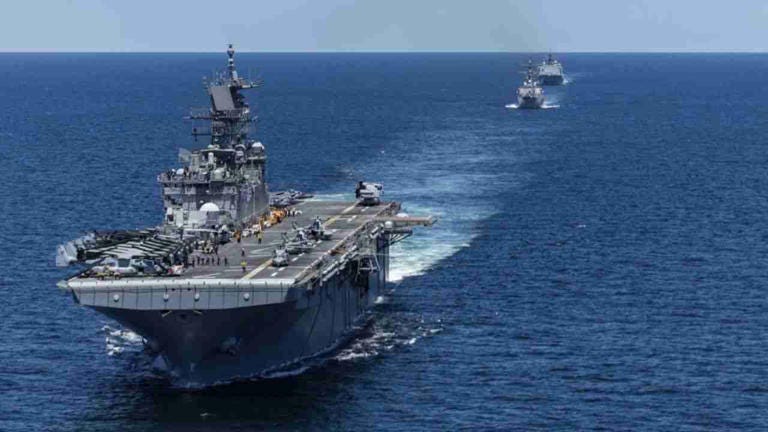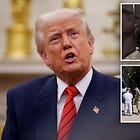Trump Squeezes Maduro’s Socialist Narco-State
As geopolitical challenges mount elsewhere around the globe, securing America’s own hemisphere seems all the more urgent.

by Martin Arostegui
September 24, 2025
President Trump’s growing conflict with the Socialist narco-state of Venezuela may seem a sideshow compared with the crises in Ukraine, the Middle East, and the Indo-Pacific. But it’s taking priority for his America First policy, as reality sinks in that the only way to stem the flows of drugs and cash, or to oust the criminal regime threatening the U.S. in its own hemisphere, may be by force.
A naval task force was ordered into the southern Caribbean at the end of August, with the primary objective of blocking drug trafficking operations by Venezuela’s Cártel de los Soles, named after the sun insignia on the shoulder patches of Venezuelan generals who have been filling the U.S. with cocaine, fentanyl, criminal gangs, and terrorists through waves of mass migrations unleashed by dictator Nicolás Maduro.
A 2,500-strong Marine Expeditionary Unit on board three powerful amphibious warfare vessels carrying some 40 helicopters and other vertical take-off and landing aircraft including state-of-the-art F-35 fighter jets is clearly intended for an eventual capture and extraction of Maduro, for whom the Trump administration is offering an eye-popping $50 million bounty.
The hope is that the military pressure, combined with the generous reward offers for Maduro, will entice his interior minister, Diosdado Cabello, defense minister, Padrino López, and other members of Venezuela’s high command to turn him over through a bloodless coup, opening the way for a democratic government. In a direct appeal to Venezuela’s armed forces released on video, U.S. Secretary of State Marco Rubio said, “You are the only ones who can avoid a bloodbath.”
“I suspect that Trump is having hardcore secret negotiations with Maduro and his generals. At least part of the Venezuelan high command would love dearly to dump Maduro if the U.S. drops drug trafficking indictments against them,” says a former high-level CIA officer who was stationed in Caracas.
Trump tried backing a coup against Maduro during his previous administration, when the Venezuelan congress accused the budding dictator of violating the constitution. But the attempt failed due to a lack of military muscle. Army officers prepared to back congressional leader Juan Guaidó at the time were neutralized by Padrino, who penetrated the plot by pretending to go along with it while Cuban and Russian advisors protected Maduro.
At the time, White House proposals for U.S. military action were resisted at the Pentagon, which exhibited an institutional allergy towards intervening in Latin America. Then-Defense Secretary Mark Esper proudly takes credit for rejecting Trump’s suggestions in his book, A Sacred Oath. It may be no coincidence that current Defense Secretary Pete Hegseth fired the head of the Defense Intelligence Agency in August.
But as more U.S. forces arrive off Venezuela’s coast, F-35s and other aircraft are deployed to Puerto Rico, and the Trump administration continues destroying drug boats, the extent to which Washington can rely on Venezuela’s military to carry the ball remains questionable.
The regime’s ties to drug trafficking are deep-rooted. Maduro’s predecessor, Hugo Chavez, was elected president in 1999 in a campaign financed by the Colombian narco terrorist organization FARC. His interior minister, Rodriguez Chacin, ran an arms-for-drugs trade with Colombian guerrillas, some of whom established bases in Venezuela.
Even promotions to key security posts became conditioned on service to the cartel.




